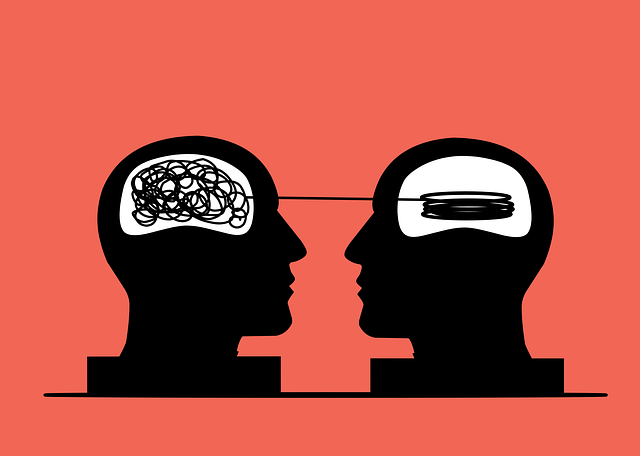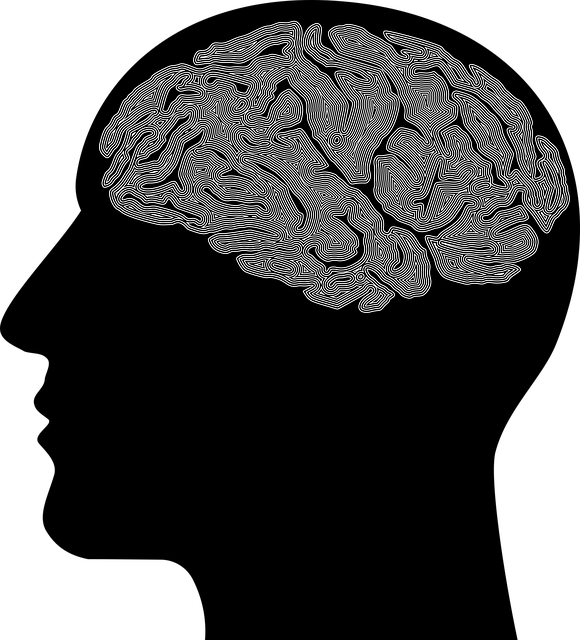Interpersonal Psychotherapy (IPT) is an effective treatment for depression, focusing on relationships and social functioning as key components of mental health. By targeting unhelpful thinking patterns related to interactions, IPT enhances well-being through improved communication, conflict resolution, and social support networks. This structured therapy empowers individuals with skills for long-term emotional regulation and better coping strategies, making it a powerful tool in the field of mental health psychotherapy.
Depression significantly impacts mental health, affecting millions globally. Traditional therapy approaches offer some relief, yet many seek more effective solutions. Enter Interpersonal Psychotherapy (IPT), a specialized form of talk therapy gaining recognition for its potency. This article delves into the understanding and impact of depression on mental health, explores traditional therapies, introduces IPT, details its core principles and techniques, highlights its benefits, compares it to other modalities, discusses integration in clinical practice, and shares real-life success stories, emphasizing the transformative power of psychotherapy for mental health recovery.
Understanding Depression and Its Impact on Mental Health

Depression is a common yet complex mental health disorder that significantly affects individuals’ daily lives and overall well-being. It’s more than just feeling sad or unhappy for a few days; it’s a persistent low mood and loss of interest in activities once enjoyed, lasting for weeks or longer. This condition can impact various aspects of an individual’s life, including their thoughts, emotions, behavior, and physical health. The symptoms may vary from person to person, but common signs include persistent sadness, feelings of hopelessness, changes in appetite and sleep patterns, fatigue, difficulty concentrating, and recurrent thoughts of death or suicide.
Understanding depression involves recognizing its profound impact on mental health. It can disrupt one’s ability to function normally, leading to social withdrawal, academic or work difficulties, and strained relationships. The condition often requires professional intervention, and that’s where interpersonal psychotherapy (IPT) steps in as an effective treatment approach. IPT focuses on identifying and changing unhelpful patterns of thinking and behaving, particularly those related to social interactions and relationships, which can be key factors in the development and persistence of depression.
Traditional Therapy Approaches for Depression

Depression is a complex mental health condition that has traditionally been treated with various therapy approaches. While many effective treatments exist, traditional methods often involve a combination of medication and psychotherapy. Psychotherapy, a crucial aspect of mental health care, aims to help individuals understand and manage their symptoms through talk therapy.
Common therapeutic modalities include cognitive-behavioral therapy (CBT), which focuses on identifying and changing negative thought patterns and behaviors, and interpersonal therapy, designed to improve relationships and social functioning. These traditional approaches have proven successful in many cases, offering a comprehensive strategy for managing depression by addressing both the symptoms and their underlying causes.
Introduction to Interpersonal Psychotherapy (IPT)

Interpersonal Psychotherapy (IPT) is a form of talk therapy that focuses on improving relationships and social functioning as key components of treating depression. This approach recognizes that our interactions with others can significantly impact our mental health, particularly when it comes to feelings of sadness or low mood. By identifying and changing unhelpful patterns in our personal relationships, IPT aims to alleviate symptoms of depression and enhance overall well-being.
In the context of mental health psychotherapy, IPT takes a structured yet flexible approach, typically consisting of 12 sessions. It involves exploring and resolving interpersonal problems, such as conflicts with family or friends, loneliness, or difficulties in forming new relationships. Therapists help individuals understand how these issues contribute to their depression and teach them effective coping strategies to navigate social challenges.
The Core Principles of IPT

Interpersonal Psychotherapy (IPT) is a highly effective form of mental health psychotherapy, specifically designed to treat depression. Its core principles focus on the intricate relationship between a person’s thoughts, feelings, and interactions with others. IPT emphasizes that our relationships are a significant source of emotional support or distress, which can greatly impact our mental well-being.
The therapy revolves around several key concepts: identifying and modifying maladaptive schemata, improving communication skills, enhancing social support networks, and promoting assertiveness. By addressing these aspects, IPT aims to help individuals understand and change unhelpful patterns in their relationships, leading to improved mood and overall mental health. This approach encourages clients to explore and resolve interpersonal issues that may contribute to their depression, fostering healthier and more fulfilling connections with others.
IPT Techniques and Their Mechanisms of Action

Interpersonal psychotherapy (IPT) is a structured form of talk therapy that focuses on improving relationships and social functioning as key components in treating depression. This approach was developed to address the unique role that interpersonal issues play in contributing to depressive symptoms. IPT techniques are designed to help individuals identify, challenge, and change unhelpful patterns in their interactions with others, thereby alleviating depression and enhancing overall mental health.
The primary mechanisms of action behind IPT involve several key components. First, it aims to increase the patient’s awareness of their interpersonal problems and how these issues may be linked to their depressive symptoms. Second, IPT encourages individuals to develop new coping skills for interacting with others, including assertiveness training and conflict resolution strategies. By learning to communicate more effectively, patients can improve their relationships and reduce feelings of isolation and loneliness—common contributors to depression. Additionally, IPT helps individuals challenge negative views about themselves and others, fostering a more positive social perspective that can significantly impact mental health.
Benefits of IPT for Depression Treatment

Interpersonal Psychotherapy (IPT) offers a targeted and effective approach to treating depression, focusing on improving relationships and social functioning as key components of mental health psychotherapy. One of its primary benefits is that it helps individuals identify and modify unhelpful patterns in their interactions with others, which can significantly contribute to depressive symptoms. By exploring and resolving interpersonal issues, IPT enables people to develop healthier coping strategies, enhance self-esteem, and foster a sense of belonging.
This form of psychotherapy encourages active participation from the client, helping them gain insights into how personal relationships impact their emotional well-being. Through structured sessions, IPT guides individuals to recognize negative thought patterns related to social interactions, promoting more adaptive behaviors. As a result, patients can experience improved communication, better conflict resolution skills, and stronger support systems—all vital aspects of maintaining good mental health.
IPT vs. Other Psychotherapeutic Modalities

Interpersonal Psychotherapy (IPT) stands out among other psychotherapeutic modalities for its focused approach to treating depression by addressing interpersonal issues and relationships. Unlike broader therapeutic models that may touch on social factors, IPT zeroes in on specific problems within personal interactions, such as conflict resolution, grief, or role transitions, which are often linked to depressive episodes. This targeted strategy makes IPT particularly effective for individuals experiencing situational depression, as opposed to more chronic forms.
Compared to cognitive-behavioral therapy (CBT), another popular method, IPT emphasizes the here and now, concentrating on current relationships and behaviors. CBT, by contrast, tends to delve deeper into thoughts and feelings, exploring patterns that contribute to depressive symptoms. While CBT offers valuable tools for managing negative thought cycles, IPT prioritizes real-time interpersonal adjustments, believing these changes can significantly impact an individual’s mental health and overall well-being.
Integrating IPT into Clinical Practice

Integrating Interpersonal Psychotherapy (IPT) into clinical practice offers a powerful approach for treating depression, focusing on the intricate relationship between an individual’s thoughts, feelings, and social environment. IPT emphasizes the impact of interpersonal relationships on mental health, aiming to identify and modify maladaptive patterns that contribute to depressive symptoms. This evidence-based therapy is particularly effective in helping patients understand how problematic interactions with others can trigger or exacerbate depression.
In clinical settings,IPT involves collaborating closely with clients to explore their personal relationships, uncover underlying interpersonal issues, and develop healthier coping strategies. By fostering open communication and providing structured support, therapists enable individuals to navigate interpersonal challenges more effectively. This integrated approach not only enhances the treatment of depression but also empowers patients with skills to maintain long-term mental well-being through improved social interactions and enhanced emotional regulation.
Real-Life Success Stories: IPT in Action

Interpersonal Psychotherapy (IPT) has been a game-changer for many individuals struggling with depression. Real-life success stories abound, showcasing its effectiveness in treating this common mental health issue. Through IPT, people have learned to navigate interpersonal challenges and improve their overall well-being.
One such story involves Sarah, who had struggled with depression for years, often isolating herself from friends and family. With the help of an IPT therapist, she began to identify and address the underlying relationship issues contributing to her distress. Over time, Sarah regained a sense of connection and support, leading to improved mood and a renewed interest in activities she once enjoyed. This transformation is a testament to IPT’s ability to empower individuals to overcome depression by focusing on their relationships and interpersonal interactions within the context of mental health psychotherapy.
